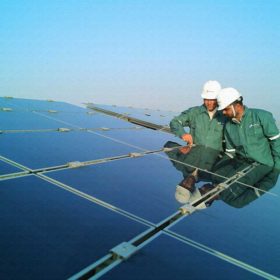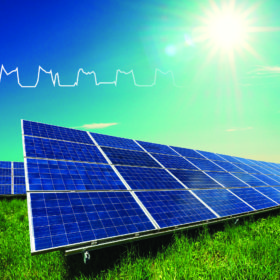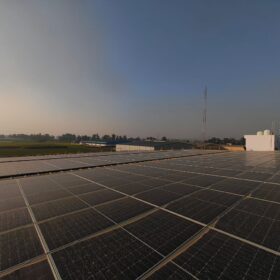NSEFI seeks liquidity fund for utilities to clear solar power dues
The lobby group has written to the Ministry of New and Renewable Energy to create a fund for providing liquidity to State Discoms and thereby clearing the dues to independent solar power producers.
China’s air pollution reduces PV production potential by up to 13%
If China could travel back to the 1960s with its 2016 PV generation capacity it could harvest an additional 14 TWh of solar power, according to a study by academics at universities in Switzerland and the Netherlands. With a mixed record for reducing pollution, the country’s solar fleet output appears to be drastically affected by dimmed solar radiation.
India needs to spend Rs 5 trillion on transmission to power $5 trillion economy
As the country races to add or upgrade infrastructure for electricity transmission, it needs to take steps to encourage private investments as also lower consumer prices—according to a white paper by Confederation of Indian Industry that includes recommendations on planning, operations and costs for a robust transmission system.
SECI amends 2 GW solar tender for state-run power generators
Micro and mini grid-connected projects will also be considered. Further, SECI has notified waiver of ISTS charges and losses and 6-month extension in the commissioning date.
Frontline to set up 100 MW solar plant in Himachal Pradesh
The pact with the diversified business group comes close on the heels of Renew Power’s proposal for 200 MW power projects in the state.
Li-ion battery manufacturing cluster coming up at Gujarat’s Dholera, Tata first to invest
The Dholera Special Investment Region—known for the upcoming 5 GW solar park—has secured the first Lithium battery investment from Tata Chemicals, which has committed Rs 4000 crore to set up 10 GW capacity.
Singaporean Sembcorp will invest Rs 5169 million in India arm to push renewables growth
After Singapore, India is the second largest revenue generator for the integrated energy player. In year 2018, it earned overall revenues of S$11,634 million (Rs 587 billion), of which S$1685 million (Rs 85 billion) came from power business of Sembcorp Energy India Limited.
EDEN Renewables seals power supply agreements for 716 MW of new solar capacity
The deals will pave the way for four new solar parks that are set to be commissioned towards the end of next year.
Has solar lost its sheen for India’s EV push?
While India’s recent union budget announced steps to create an electric vehicle market, the solar sector still has issues that have not been addressed.
Energy storage and EVs clear winners in union budget 2019: IESA
The new budget aims to seize the opportunity in energy storage and EVs through a range of incentives. However, alongside demand, production and export, the government also needs to focus on e-waste management and Li-ion battery recycling to sustain raw material supply and minimize environmental impact.














